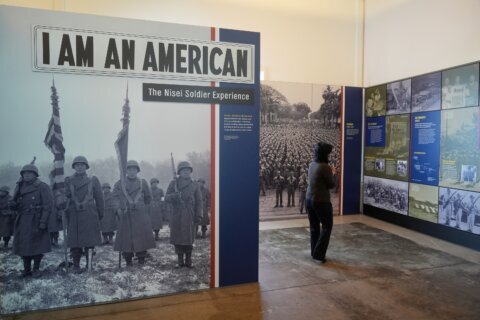African Americans researching their family history just got a treasure trove of free digital documents at their fingertips.
Recently, Ancestry unveiled more than 3.5 million records from the Freedmen’s Bureau, a post-Civil War agency created to help Black people transition from slavery.
“I was able to trace my ancestors while they were enslaved, and I would not have had that opportunity had the bureau’s records not been available,” professional genealogist Nicka Sewell-Smith said.
Ancestry had a limited number of Freedmen’s Bureau records on its website. But recently, the genealogy research company asked the National Archives for more and got them, Sewell-Smith said.
“This collection is beyond a game changer,” she said. “When it comes to African-American genealogy, so many folks spend time trying to get to who the last slave-holder was. With this collection, you are getting those names.”
President Abraham Lincoln signed the bill that created the bureau right after the Civil War. Bureau workers documented everything from marriages to work contracts to military service.
For many newly-freed African Americans, the bureau’s records is likely the first time they appear in records after Emancipation. Many slave-owners omitted their workers’ names from census and federal documents, she said.
“There are so many stories in this collection,” Sewell-Smith said. “You have records for hospitals. You have records for schools. We’re getting this really granular level detail about the lives of slaves as the Civil War is ending.”
The archive may help others research their ancestors, too.
Ancestry conducted a poll and found that a little more than 70% of Americans had never heard of the Freedmen’s Bureau.
A little-known fact: the bureau helped Black and white people
“The truncated name is Freedmen’s Bureau,” Sewell-Smith said. “But when you talk about the name: The Bureau of Refugees, Freedmen and Abandoned Lands. The refugees were poor whites. We were a war-torn country. [We see] accounts of people trying to get rations, so they can eat.”
Between 1865 to 1872, the bureau had offices in 15 Southern states.
But, Virginia collected more records than all the others. “That’s the No. 1 state in the collection,” Sewell-Smith said.
The collection is free on Ancestry, and Sewell-Smith said that will help many more Black people search for — and find — their family history.
“The free access, in itself, to a collection of this size, I’m just so excited to see what folks are going to be able to do,” she said. “It really, I think, going to push more people to want to become aware of that time span.”








